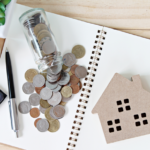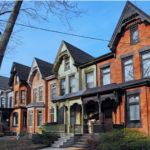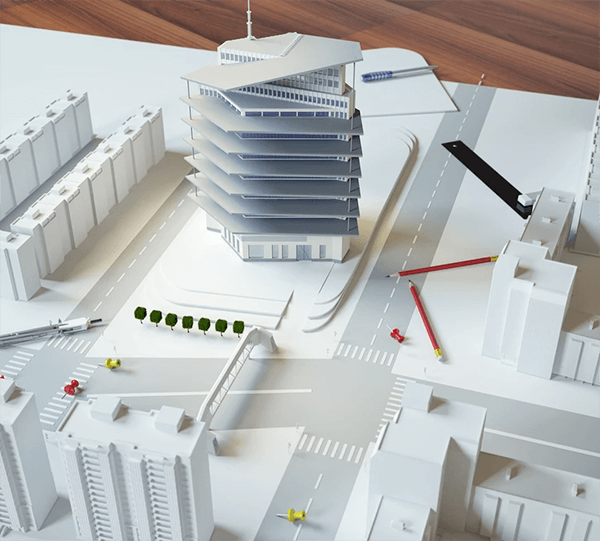Tags: Real Estate, Buying, Home, homebuyer, twenties
A step-by-step guide to buying a home/condo in your twenties in GTA
The way property prices in the Greater Toronto area (GTA) have been skyrocketing for the past few years most people believe they will have to save for a lifetime just to make a down payment on a home. Debates are raging over how even upper middle class families have been priced out of the market. Not surprisingly, many young people in their twenties stand on the sidelines and wonder: should they even dream of buying a home or a condo?
The younger generation juggles with an array of challenges including career and relationships at this stage in life. Add homeownership to the bag and the pressure becomes overwhelming.
But believe it or not millennials make up one of the largest segments of homebuyers in Toronto now. They are taking the plunge because the charm of being able to personalize and customize their own space, building equity and taking advantage of tax benefits is irresistible.
If you are in your twenties – trying to get through the maze of complexities that is the process of buying a home in Toronto can be daunting. Here is a step-by-step guide for you to follow:
Decide if homeownership makes sense for you
With homeownership comes several responsibilities:
- You have to stay put at one place for a few years.
- You have to spend more time maintaining your home than you do your rental.
- You have to be financially prepared because you pay for insurance, property taxes, and maintenance and repair costs on top of the monthly mortgage payments.
If you love Toronto and plan to live in one place for at least 5 years or more, then you should go ahead and buy that home of your dreams.
How is your credit history?
Your credit history is the first thing lenders will look at while reviewing your mortgage application. It is a record of a borrower’s responsible repayment of debts. If you have never taken a loan, you will hardly have any credit history. In that case, you should get a credit card and use it responsibly for a few months.
If you already have an established credit history, request a free copy of your credit report from all major credit rating agencies such as Equifax and TransUnion Canada and find out if your rating is good enough to qualify for a mortgage.
In order to qualify for the best interest rates and terms, you should have a credit rating of 720 or more. A credit score of 760-plus is considered the best. If your credit score is lower than 620, you are in trouble. Even if a lender agrees to approve your mortgage application, you will have to pay higher interest rates and won’t get the best terms.
Start your home search by getting pre-approved for a mortgage
Submit details (with documentary proof) of your current income, employment and tax payments to several banks for their underwriters to pre-approve you for a mortgage.
A mortgage pre-approval letter will tell you the exact dollar amount that you have been approved for. Once you know this amount, you will know your budget depending on how much down payment you are willing to make.
First time home buyers assistance programs
Did you know that if you are buying your first home in the GTA, you – as a first time home buyer – are entitled to at least four types of assistance programs to help with the purchase?
The federal Home Buyer Plan (HBP) If you have an RRSP account, you can borrow from yourself under the HBP. You can withdraw up to $25,000 for use toward the purchase of your home. You can pay back this amount over 15 years.
The federal First-time Home Buyer’s Tax Credit Under the First-time Home Buyer’s Tax Credit program, you can claim up to $5,000 in total as a tax credit, and you are entitled to a federal tax relief of up to $750.
The Ontario Land Transfer Tax Rebate As a first time home buyer, you can claim a refund of up to $4,000 of land transfer tax that you pay when buying a home in Ontario.
The Toronto Municipal Land Transfer Tax Rebate If you are buying in the City of Toronto “proper”, you can claim a refund of Toronto’s municipal land transfer tax, up to $3,725.
Save for down payment and closing costs
When buying a home in Toronto, you have to put down at least 5 per cent of the property’s first $500,000, plus 10 per cent of any amount over $500,000. Closing costs can amount to anywhere between 1.5% and 3% of the purchase price.
Keep in mind even if you take advantage of assistance programs, you may have to arrange for thousands of dollars to cover the closing costs and down payment.
For most people in their twenties, arranging for down payment is the biggest obstacle. Depending on your current income and lifestyle expenses, put aside money consistently for six to 12 months before you even hit the market looking for a home.
Find your dream home that fits in your budget and needs
Forget about all of the news and coverage over low affordability levels in GTA. You can always find a home that fits in your budget. Your dream may be to buy a palace with your own swimming pool in the backyard, a large garden and other such luxuries, but in reality you should never lose sight of your budget. You should focus more on ‘must-haves’ rather than ‘should-haves’.
If a condo – not a detached or semi-detached house – fits in your budget and needs, you should go ahead and buy one. You can find plenty of affordable condos in good areas of the city and GTA. Enlist the services of a real estate agent who can help you find the right property. Once you zero in on a property, run all the investment metrics to ensure you are putting your money in a home that will build equity and appreciate in price over time.
Make sure your desired location has a low crime rate and all the necessary amenities including transportation. The place should be fairly closer to work. In a nutshell, the neighborhood should suit your lifestyle and requirements.
Conclusion
Careful planning is the key to realizing your homeownership dream in Toronto or anywhere else for that matter. Don’t stretch yourself financially by buying a home that you can’t afford.











